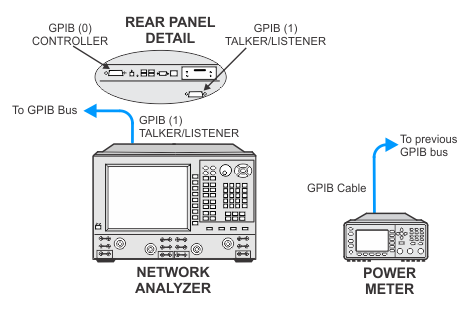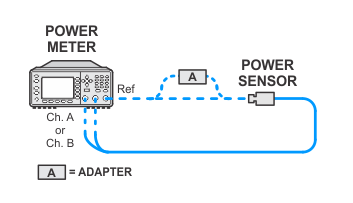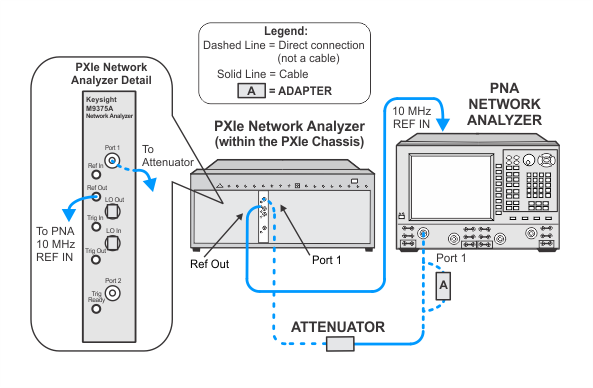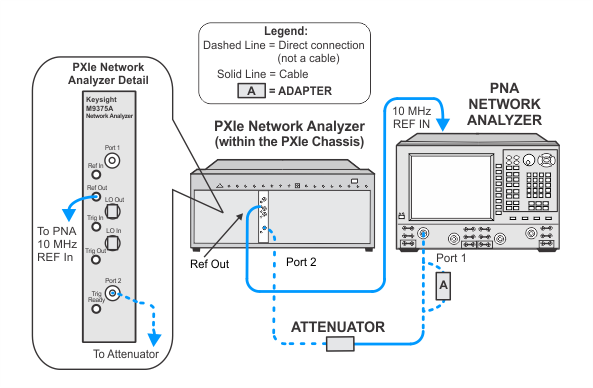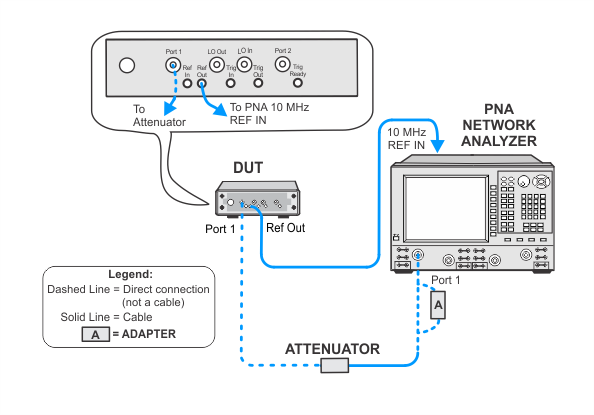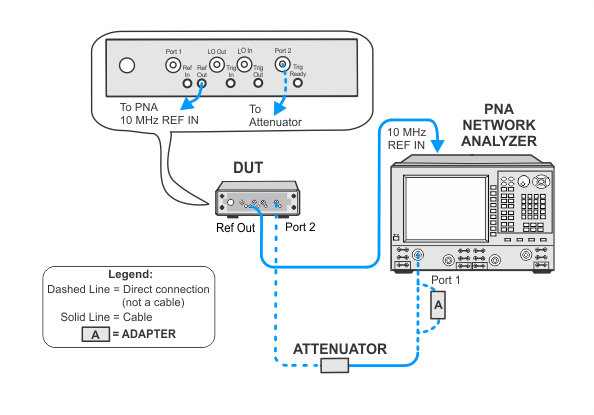Maximum Output Port Power Performance Test
This test measures the VNA's ability to deliver maximum power to a matched load versus frequency. It will record the maximum absolute power a source is able to produce under leveled and unleveled conditions. To measure the maximum unleveled source power, the VNA is set to source more power than it is capable of delivering. At this point, the ALC loop’s integrator is railed and the VNA has reached its limit. The power is then measured registering the maximum unleveled power.
PNAasPowerMeter
To measure the maximum output port power of the VNA source, the source must be connected to a receiver. Since the VNA source has high harmonic content, a broadband power sensor cannot be used to measure the source power. Therefore, a SmartCal procedure called PNAasPowerMeter will be used to make an external PNA behave as a tuned power meter. The data from the SmartCal will be saved and, providing it's within four hours and the cable and attenuator connections have not been disturbed, can be used in the following tests:
Refer to Connections and Setup Procedures below for more information.
Click here for troubleshooting help.
Required Test Equipment
|
PNA network analyzer
|
N5245B
|
|
Attenuator, 10 dB
|
8493C Option 010
|
|
Power meter 2
|
N1914A
|
|
Power sensor 2
|
N8485A
|
|
ECal module, 3.5 mm
|
N4691D3 Option M0F
|
|
Cable, 3.5 mm (m) to 3.5 mm (f)
|
8121-2111
|
|
Adapter, 3.5 mm (f) to 3.5 mm (f)
|
83059B
|
Connections and Setup Procedures
|

|
To ensure best test results, use a good quality cable, adapter, and attenuator. Do not disturb the adapter/cable/attenuator setup attached to the PNA.
Because the data from the PNAasPowerMeter calibration is stored and re-used by other tests, it is important that the most accurate data is achieved by following these practices.
|
PNAasPowerMeter
This test uses a procedure called PNAasPowerMeter. A calibrated PNA receiver will be used as the filtered power level measurement standard. This receiver is a combination of a PNA with a cable connected to one of the test ports, and a 10 dB attenuator connected to the end of the test cable. The attenuator is used to minimize the measurement uncertainty due to the VNA port mismatch.
Unless recalling stored data from a previously run PNAasPowerMeter procedure, or if the cable, adapter, or attenuator attached to the PNA has been disturbed, this process must be performed prior to running the test.
Flexible power sensor channel assignment
This test will use flexible power sensor channel assignment that will identify the channel that a power sensor is connected to using the ability of "smart" sensors such as the N848xA series power sensors to report their full model and serial number. Therefore it is important to keep the power sensor on the channel where it was calibrated throughout the test procedures.
Click on the drop-down links below to view setup images.
 PNAasPowerMeter Calibration Procedures
PNAasPowerMeter Calibration Procedures
|

|
The illustrations below show details of the GPIB connections of the power meter and the PNA. After the power sensor calibration, the PNA will directly control the power meter through the GPIB cable. In order for this to occur, be sure when making the GPIB connections to:
-
Leave the power meter's GPIB cable connected to the power meter.
-
Disconnect the other end of the power meter's GPIB cable from the GPIB bus.
-
Now take that disconnected end of the GPIB cable and connect it to the GPIB(0) CONTROLLER on the rear of the PNA. Refer to the Rear Panel Detail in the illustrations below.
-
Make sure that power meter's GPIB cable is only connected to the GPIB(0) CONTROLLER of the PNA and that the PNAS's GPIB(1) TALKER/LISTENER is connected to the GPIB bus of the PC.
|
Step one of the PNAasPowerMeter calibration procedure
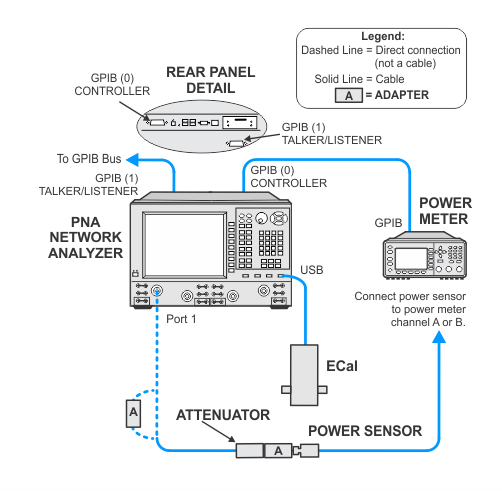
Step two of the PNAasPowerMeter calibration procedure
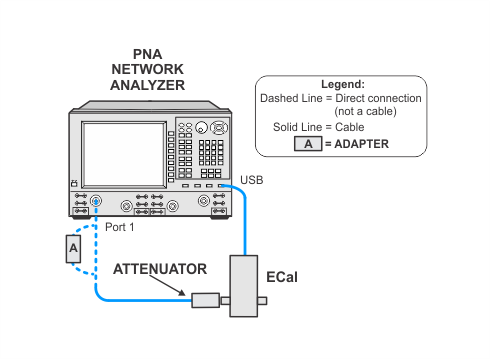
Step three of the PNAasPowerMeter calibration procedure
